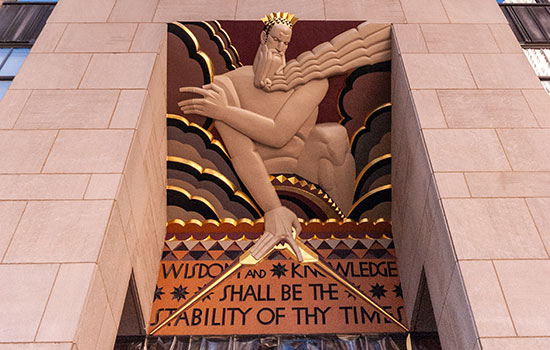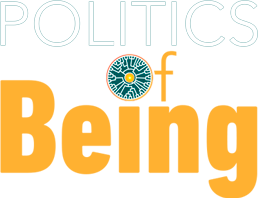"Politics of being aims at aligning our institutions with our true reason to be here on Earth: becoming who we are, the best and most complete version of ourselves"Thomas Legrand
About the Book
Mobilizing a wealth of scientific research from many different fields, the core teachings of wisdom traditions, and his own personal experience, Legrand articulates how politics can support human flourishing and the collective shift of consciousness that our current challenges demand.
An awakening journey into our human and social potential, Politics of Being charts the way for a truly human development in the 21st century, one to reconcile our minds and hearts, and the whole Earth community.
Decision and policy-makers, scholars, sustainability and spiritual practitioners, social activists and citizens will benefit from:
- an integral map of such a politics as it emerges;
- concrete examples and recommendations in numerous areas ranging from education to governance, to justice and economy;
- a complex question converted into a clear and tangible agenda;
- a wealth of references to deepen their exploration;
- and much more.
A unique, field-defining work on what may be the most important subject of our times… and history!
- The Politics of Being walks on two legs: wisdom and science.
- It recognizes that all living beings have the right to flourish.
- It proposes a conceptual framework able to accommodate all relevant claims and initiatives.
- It is a practical perspective with actionable public policy recommendations in many sectors.

Politics of Being: The Concept
We are searching for a new model of development: “the old model is broken. We need to create a new one” said Ban Ki-Moon.
There is a growing recognition that this would go hand in hand with a profound cultural evolution, which, as the Earth Charter said, calls for “a change of mind and heart”, or simply said, inner development. An unprecedented technological development has given humanity enormous power that has led to the “Anthropocene”. This focus on the material and external aspects of our lives, and the neglect of the inner dimension (wisdom, ethics, consciousness…) have created an imbalance, which is at the root of most of our problems.
This book researched what wisdom traditions, in dialogue with science, can tell us about how to design this new model of development. This wisdom-based approach to politics offers a coherent vision across many different traditions and resonate with current emerging reflections. It puts human fulfillment at the center of our development efforts. In the 21st century, I argue that this should now be the fulfillment of all living beings, including non-humans (plants, animals, ecosystems, mother earth, etc.). Human fulfillment is the realization of our full potential: our highest and truest being. Our highest being refers to the development of inner values, virtues, or qualities, while our truest being relates to the process of becoming who we really are. They both converge in the manifestation of our true interbeing or relational nature.
Economic growth should only be treated as a mean to achieve this end and becomes less important once economic development has reached a certain level. As stated in the Earth Charter: “when basic needs have been met, human development is primarily about being more, not having more”.
The primary objective of governments should be to provide the means for each being to express its full potential, achieving its deepest healthy aspirations, while using and developing the best in oneself. This parallels the emerging political agenda centered on happiness, well-being and the quality of life. It also echoes the conclusion of American political economist Elinor Ostrom, who is arguably the most influential scholar at the moment in institutional analysis. In her lecture for the reception of her Nobel prize in economics in 2009, she summarized the most important lesson she drew from fifty years of research: “designing institutions to force (or nudge) entirely self-interested individuals to achieve better outcomes has been the major goal posited by policy analysts for governments to accomplish for much of the past half century. Extensive empirical research leads me to argue that instead, a core goal of public policy should be to facilitate the development of institutions that bring out the best in humans.”
The highest values are at the core of our nations’ projects as reflected in most national motto’s such as France’s “Liberty, Equality, Fraternity” or India’s “Truth alone triumphs”. The 1776 American Declaration of Independence also recognizes “Life, Liberty, and the pursuit of Happiness” as unalienable rights which governments are created to protect. They are the guiding stars of our nations, which help us collectively thrive. The politics of being is founded on the highest values, including Plato’s transcendentals – Truth, Goodness and Beauty – and the values that have been at the center of our current model of development: freedom and abundance / prosperity. The politics of being is also currently being manifested through new values, that have become subjects of science in the last decades and are entering the political field: systemic and complex thinking (cf. interdependence), life, happiness, love or empathy, peace, mindfulness, etc.
The politics of being conceptualization allows to identify an agenda for action with clear priorities and many concrete public policies in all sectors that can embody such politics and bring about the cultural evolution – as well as the human, social and environmental regeneration – we need.
10 core messages
- We need a collective shift of consciousness, a cultural evolution of a spiritual nature, to address our current challenges. It is already ongoing, and we are currently facing an evolutive crisis, which requires individuals and societies to look inward and transform.
- As a wisdom-based, science-informed approach, a politics of being can support this evolution. Its main goal is to support the fulfilment of all beings, that is to say the realization of our truest and highest being. “Being” is a wiser and more adequate development objective than “having;” it applies to the whole Earth community.
- Cultivating our fundamental “interbeing” or relational nature is instrumental to allow us to live in harmony with one another and the Earth community. Our spiritual nature makes us interconnected at the level of being with everything that is. Only by recognizing their interconnectedness and sustaining the whole can each part thrive.
- Societies progress as they increasingly honor the highest values, qualities, and ideals, such as freedom, goodness, beauty, truth, understanding, life, happiness, love, peace, etc. These are spiritual qualities in the sense that they reflect an awakened human being or divine perfection. Science and practical initiatives shaped around these universal values can help us design a politics of being. Cultural development relates fundamentally to an evolution of our values, which shape our worldviews and institutions.
- The focus on being and the highest values provide a simple conceptual framework for a politics of being, which can integrate all relevant claims and initiatives. As such, it can help unify this vision and strengthen this movement.
- Our institutions should help cultivate human virtues. They should acknowledge and facilitate the expression of our potential for goodness, cooperation, and intrinsic motivation.
- Concrete and actionable policy recommendations supporting this agenda already exist in many sectors. A politics of being can bring them together and scale them up, articulating them in a coherent and meaningful narrative.
- Spiritual teachings and wisdom traditions, through dialogue among them and with science, have much to bring to inspire, help design, and implement a politics of being. They are our most valuable common heritage, able to offer a profound understanding of human nature, as well as practical knowledge and tools for inner, and ultimately social, development.
- Each nation needs to reconnect to its own soul and wisdom to develop its version of a politics of being that can support its development and help it bring its unique contribution to the world. Unity in diversity is the key to harmonious coexistence of nations in a globalized world.
- Healing trauma is, for individuals and societies, the gateway to being. It is fundamental in order for new ways of being and living together to be possible, and for the whole Earth community to flourish.

